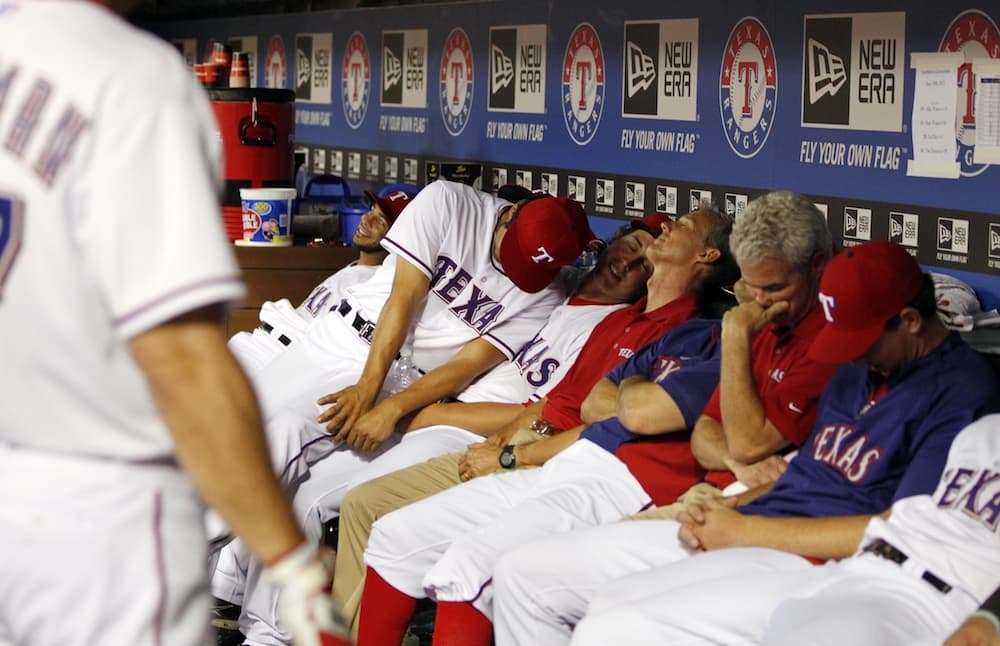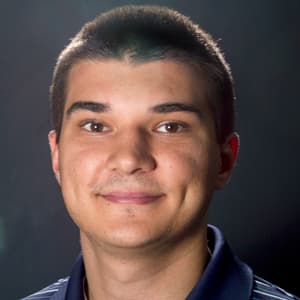
Joe Maddon felt hungover Monday morning. The Chicago Cubs manager didn't drink the night before. He managed an 18-inning Sunday Night Baseball game the Yankees won in New York in six hours and five minutes.
The game, which was so long they literally ran out of baseballs and were forced to fetch more, finished at 12:16 a.m. MT — 16 hours and 24 minutes from when the Cubs were slated to take on the Colorado Rockies in Denver. (The game was eventually cancelled due to rain.) The Cubs arrived at D.I.A. at 5 a.m. and got to their hotel at 6 a.m.
"You feel like you have that hangover without any of the benefits of drinking," Maddon said. "It’s one of those things you have to fight through in our business."
Such quick turnarounds can affect a player's performance. Sports scientists have found that a lack of sleep leads to slower reaction times on the field. A 2013 study conducted by researchers at the University of Vanderbilt found that the league-wide trend of plate discipline worsening as the season goes on could be attributed to fatigue. Another showed that a player's longevity is tied to how sleepy they are.
The Cubs-Yankees game was an extreme case, but it was indicative of the MLB's insane travel demands. Teams play 162 games in the span of six months. Flights in the wee hours of the morning are inevitable at some point. But is there anything the MLB should do to make the travel a little less taxing?
“That kind of sleep deprivation, it’s going to mostly impact attention and judgement," said Dr. Scott Kutscher, an assistant professor of medicine at the University of Stanford who specializes in sleep science. "When you’re tired, you can’t stay focused on the task at hand. It could mean at the plate or on the pitcher’s mound not being as quick to react. Reaction time is affected."
The ESPN broadcast crew on Sunday kicked around the idea of games ending in ties after a certain number of extra innings. In the World Baseball Classic, once the game got to the 11th inning, each team began with runners on first and second. The MLB has also considered the possibility of a 154-game season.
Maddon, whose Cubs have become regulars on Sunday Night Baseball, said that he's on board with the league giving Monday off to whichever team plays in the ESPN showcase game. (MLB teams who aren't on Sunday Night Baseball typically play day games to help with travel.)
Other than that, however, the Cubs skipper said he's doesn't want to see baseball's rules drastically changed — a sentiment backed up by a handful of players and coaches Denverite spoke to Monday before the Rockies-Cubs rain-delayed game.
“Everybody goes through it," Maddon said. "I really don’t want our team to be one that makes excuses. It’s part of the industry."
Rockies manager Bud Black, who had a 15-year career as a pitcher before going into coaching, agreed with his friend.
"Players are conditioned for these sorts of things," Black said. "You go back to when you were a minor league player. You ride that bus from Tulsa to El Paso, or that bus from Lynn, Massachusetts, to Buffalo, and you roll in at the Best Western Buffalo at 6:30 a.m. and you have a 1:30 game. You get conditioned to this stuff."
Colorado's Ian Desmond, who's in his ninth MLB season, said that the turnarounds in the big leagues are nothing compared to what players endure at the minor-league level. He remembers finishing games a little after midnight and then having to hop on a bus to get to a 10 a.m. game in another city.
"We weren’t flying private jets around the country at the time either," Desmond said. "We were sleeping at a Best Western."
Rockies first baseman Mark Reynolds said that it usually takes a couple days for him feel the effects of those wee-hours, cross-country flights. He admitted to feeling sleepy during a game two or three days after an early-morning flight. Still, he wouldn't change anything about the MLB schedule.
"It’s tough man," Reynolds said. "You just have to grind it out. You’re here all the time. It’s just what you’ve got to do.”
Subscribe to Denverite's weekly sports newsletter here.












